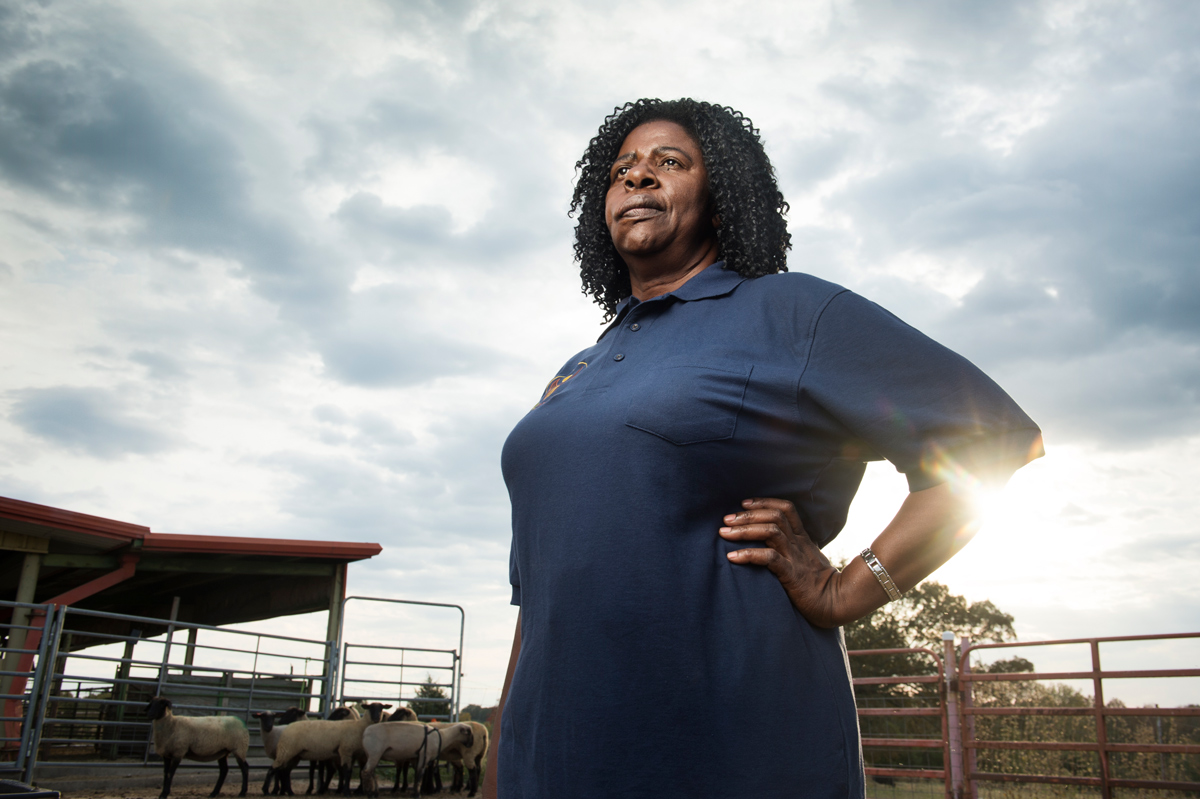
Growing up in Uganda, Margaret Khaitsa always excelled in the sciences, and she became one of few young women to study chemistry and biology in her advanced high school. She expected to go into agriculture, but changed her career focus when she qualified to study veterinary medicine at Makerere University.
Today, she is a professor of international veterinary epidemiology in Mississippi State’s College of Veterinary Medicine. She earned a master’s degree at University of Edinburgh in the United Kingdom and a doctoral degree at The Ohio State University before working for a decade on faculty at North Dakota State University. She was attracted to MSU in 2013, soon after she attended a university conference on food security. She was impressed by MSU’s strategic goal of globalization, along with its relationship with the U.S. Agency for International Development and the Food and Agriculture Organization.
“That aligned really well with what I was doing,” said Khaitsa, referring to a USAID-funded project she was working on in “Capacity building in Integrated Management of Transboundary Animal Diseases and Zoonosis –CIMTRADZ” in East Africa.
Khaitsa’s faculty appointment at MSU is divided between 20 percent teaching, 40 percent research and 40 percent service, and she particularly enjoys connecting MSU with universities in sub-Saharan Africa.
“This summer, I spent three months in Uganda and Tanzania,” Khaitsa said about her recent trip, which was supported by Carnegie African Diaspora Fellowship Program and MSU. Her trip involved teaching tropical veterinary medicine and "One Health" practices in Uganda with four MSU students. The course is structured to include students from other universities. She also mentored graduate students at Makerere University in Uganda and Sokoine University of Agriculture in Morogoro, Tanzania.
“Veterinary medicine is a robust profession, and you can go in so many directions. I had trouble deciding which specialization to take, but I found my niche in epidemiology and public health,” Khaitsa said, explaining that she loves how the science informs policy decisions and focuses on preventative medicine.
Khaitsa specializes in large animal herd health, a topic important to the U.S. and African economies.
In addition to a passion for her academic discipline, Khaitsa also loves to help other women develop their career and take on leadership roles.
“There are so many capable women at universities globally who don’t take on leadership positions,” she said, adding that this is particularly true in the East African region. Khaitsa does her part by serving as a mentor both at MSU and in East Africa.
Together with her colleagues from East Africa, Khaitsa founded Higher Education Resource Services, East Africa (HERS-EA), an educational nonprofit that provides leadership and management development for women in post-secondary institutions in East Africa and is affiliated with the Denver, Colorado-based HERS organization. This summer, HERS-EA offered an inaugural women’s leadership academy, with 70 women primarily from East Africa and the U.S. attending.
Her work to inspire and equip other women for leadership led to her recognition by the MSU President’s Commission on the Status of Women with a 2017 award.
Khaitsa also is a mother of two. Her son Allan is a computer scientist developing mobile apps in California, and her daughter Angella is a freshman computer science major at MSU.